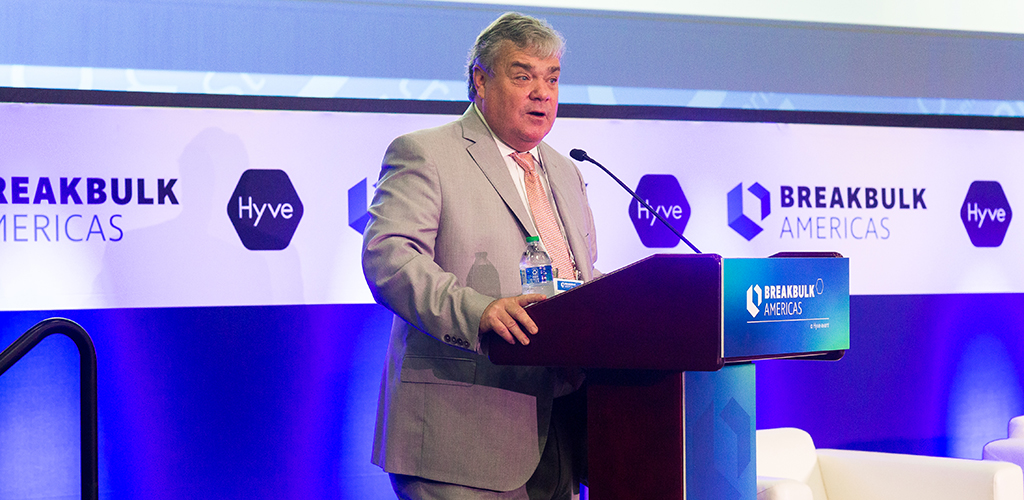Oct 07 | 2021
Bentzel: FMC to Weigh in on Demurrage, Detention Fees

By Lori Musser
Worldwide shipping arteries remain clotted, a disastrous side effect of the Covid pandemic, and U.S. Federal Maritime Commissioner Carl Bentzel did not offer a positive prognosis for the coming year, in keynote remarks at Breakbulk Americas in Houston.
“We can’t get enough cargo into the United States because there is not enough space, not enough equipment,” due largely to the combined impact of Covid on the nation’s supply chain and economy, coupled with unabated U.S. consumption, Bentzel told the packed audience.
U.S. freight mobility continues to be impacted by unprecedented congestion, lack of equipment, and aberrant supply and demand, but Bentzel praised the maritime industry for finding ways to accommodate 20 percent more cargo during the Covid recovery months. “It was a remarkable effort and in my view sustained our country,” he said.
“I believe for the next year we are going to be in a situation where everyone must come up with alternatives. It is essential to our nation. We are looking long term at what we can do with the supply chain to make it efficient. There is simply just not enough room at U.S. ports,” said Bentzel, indicating long-term infrastructure development is required.
Demurrage and Detention
The FMC, as the U.S. ocean transportation regulator, is addressing numerous complaints related to demurrage and detention fees, charges assessed to shippers that are meant to incentivize the movement of cargo, but that may be considered excessive or unfair when it is difficult to pick up cargo at congested ports, he said.
“Yes, there needs to be a way to resolve these ridiculous overcharges,” he said. “We are putting out a public rule making and asking industry to make a comment on it.”
Bentzel said the FMC wants to ensure critical cargo, from purification chemicals for drinking water to equipment and components for new infrastructure projects, makes it to destination on time. He expressed concern for what he called a change from the just-in-time model to the just-in-case model, with beneficial cargo owners importing product months ahead of need just in case supply chain delays continue, thereby exacerbating congestion.
The congestion has escalated shipping rates for both container and breakbulk cargoes. Lengthy waits to offload container vessels has shrunk capacity utilization and sent container carriers scurrying for space on multipurpose vessels. While that is an opportunity for revenue diversification, it creates a shortage of ocean carrier space for breakbulk and project cargo.
